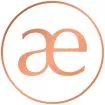- in European Union
On EU-level it depends on whether your slogan is merely perceived as a promotional formula or if it is also considered an indication of commercial origin - if the latter is the case, then the answer is yes, your slogan can be registered as a trademark.
A trademark's purpose is to indicate the origin of specific goods and services and thereby allow the consumers to distinguish between different undertakings. In order to fulfill this purpose, a trademark must have distinctive character.
This is where it gets a bit tricky for slogans (compared to i.e., logos) since slogans, rather than being perceived as indicators of origin, are generally perceived by consumers as nothing more than commercial instruments in the marketing of goods and service. For this reason, slogans are struggling to meet the legal requirement of distinctive character.
Over the years, there has been uncertainty about which factors are the determining factors when assessing if a slogan has sufficient distinctiveness to be registered as a trademark.
In order to provide certainty and enhance the consistency of the decision making on EU level in regard to slogans, EUIPO released a report1 last year (2021) which compiles existing case-law from the General Court, the Court of Justice and the Boards of Appeal on the subject as well as guidance on the assessment of the distinctiveness of slogans.
The report from EUIPO has provided us with the following list of factors which may serve to determine if a slogan has distinctive character.
The slogan:
- has a number of meanings
- constitutes a play on words
- introduces elements of conceptual intrigue or surprise, so that it may be perceived as imaginative, surprising or unexpected
- has some particular originality or resonance, and/or triggers in the minds of the relevant public
- has unusual syntactic structures and/or linguistic and stylistic devices such as alliterations, metaphors, rhymes
However, none of these factors apply in absolute terms, meaning that distinctiveness cannot necessarily be established solely on the ground that a slogan has a number of meanings, and on the other hand a slogan is not necessarily devoid of distinctive character if it does not constitute a play on words. The assessment should always be conducted on a case-by-case level.
In the case 'Vorsprung durch Technik'2 (Meaning inter alia 'Advance or advantage through technology'), the slogan was applied for trademark registration for a wide range of specific goods and services relating to vehicles, motor parts, safety and security equipment, amongst others. The Court found that the slogan can be considered or perceived as being a promotional formula as well as an indication of the commercial origin of the mentioned goods and services. Under these specific circumstances, the Court held that the slogan possesses distinctive character and that it is capable of being registered as a trademark, despite being primarily understood as a promotional formula.
In the case Best Buy II3, the applicant had applied for registration of BEST BUY in relation to goods within the category of audiovisual and information technology equipment. The Court ruled that the consumers would solely perceive the slogan as a promotional formula in relation to the nature, value or quality of the products offered by the applicant. Hence, the Court found the slogan to be devoid of distinctive character, and therefore not fulfilling the requirements for being registered as a trademark.
In the case Wet dust can't fly4 the applicant had applied for trademark registration of the slogan 'Wet dust can't fly" for goods and services in relation to vacuum cleaners and repair and maintenance hereof. The General Court found inter alia that the slogan calls for an interpretative effort and that the slogan exhibits a degree of originality and a certain resonance which makes it easy to remember. Although the slogan, furthermore, was found slightly suggestive, the General Court found that the slogan possesses distinctive character and was fulfilling the requirements to being registered as a trademark.
In conclusion and summing up, a slogan can be registered as a trademark if it is not merely perceived as a promotional formula but is also considered an indication of commercial origin. To be considered an indication of commercial origin, the slogan needs to have a sufficient degree of distinctive character. Going forward, with the report available, it should be easier to predetermine if a slogan is sufficiently distinctive to be eligible for trademark registration based on the factors listed in the report.
Footnotes
1.
Case-law Research Report - The distinctive character of slogans,
Board of Appeals, October 2021
2. Case
C-398/08
3. Case C-92/10
P
4. Case
T-133/13
The content of this article is intended to provide a general guide to the subject matter. Specialist advice should be sought about your specific circumstances.


